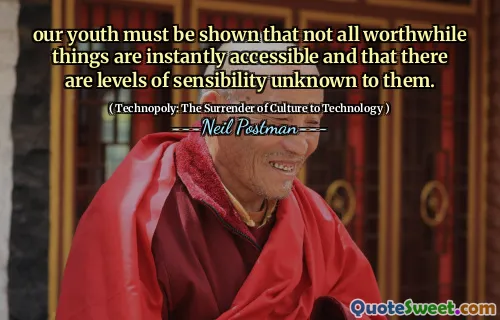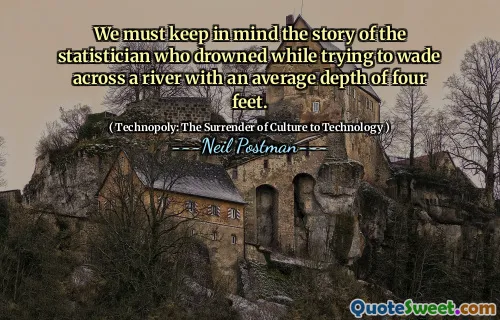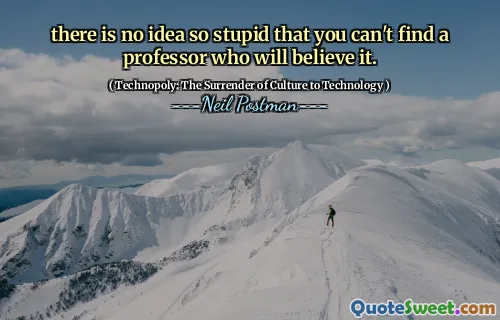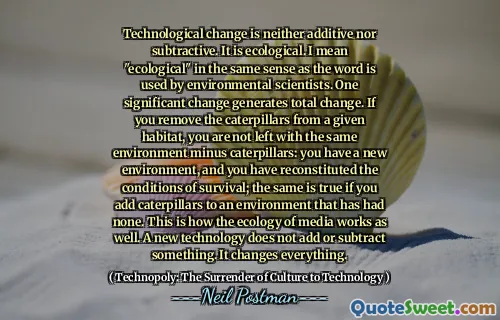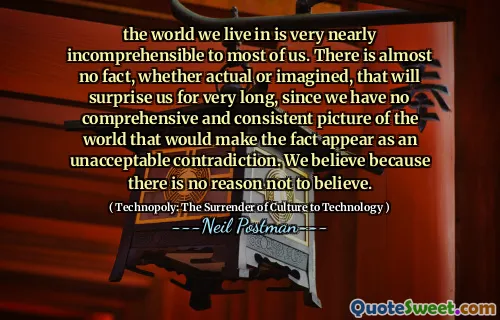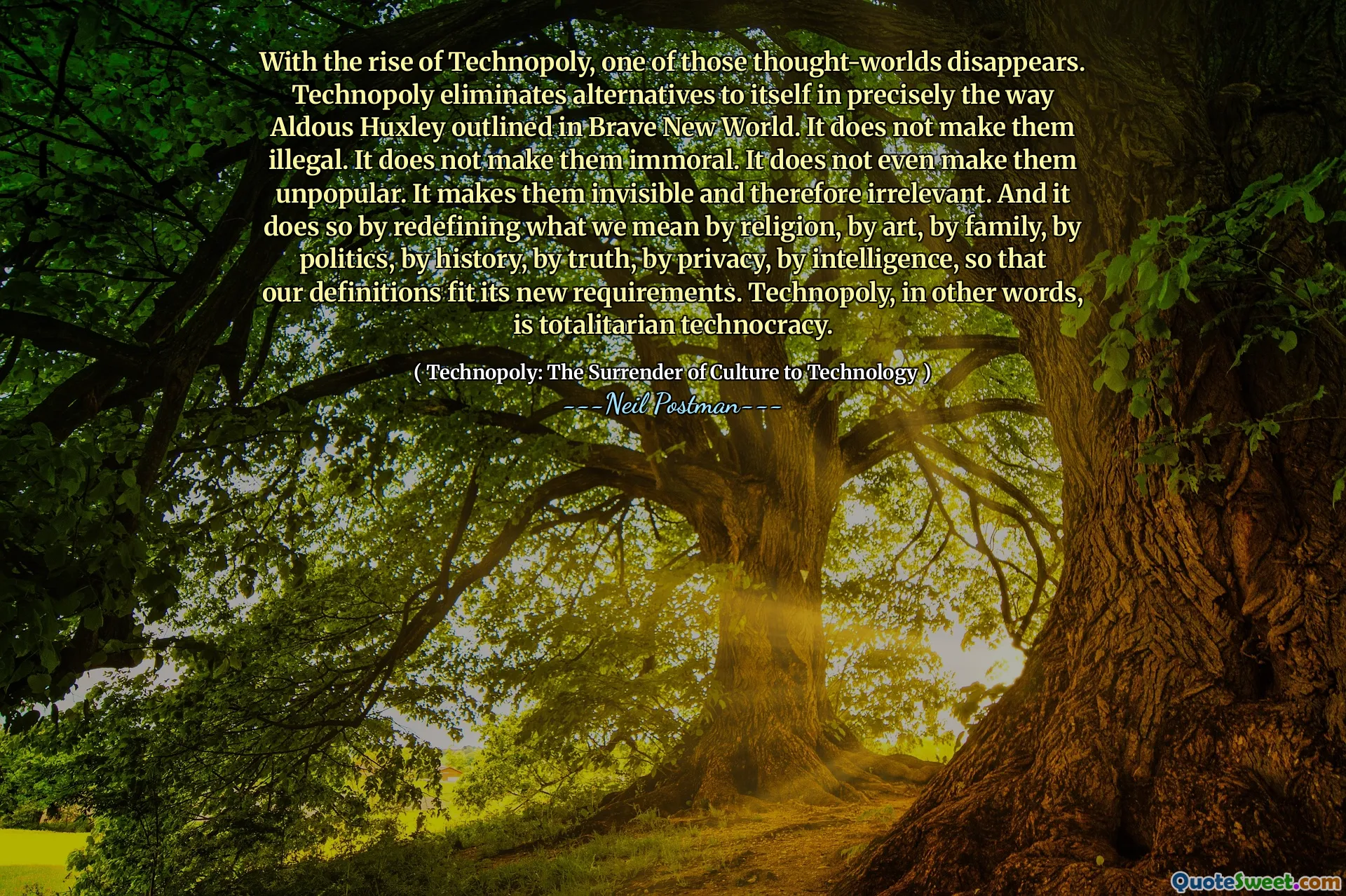
With the rise of Technopoly, one of those thought-worlds disappears. Technopoly eliminates alternatives to itself in precisely the way Aldous Huxley outlined in Brave New World. It does not make them illegal. It does not make them immoral. It does not even make them unpopular. It makes them invisible and therefore irrelevant. And it does so by redefining what we mean by religion, by art, by family, by politics, by history, by truth, by privacy, by intelligence, so that our definitions fit its new requirements. Technopoly, in other words, is totalitarian technocracy.
In his book "Technopoly: The Surrender of Culture to Technology," Neil Postman discusses how the rise of Technopoly leads to the disappearance of alternative thought systems. According to Postman, Technopoly does not outright ban or condemn these alternatives; instead, it makes them invisible and irrelevant. This transformation occurs as society's definitions of key concepts like religion, art, and truth are reshaped to align with Technopoly's demands.
The implications are profound, suggesting that rather than directly suppressing ideas, Technopoly subtly redefines cultural norms. As a result, it establishes itself as a form of totalitarian technocracy, where traditional values and alternatives are gradually erased from public consciousness. This shift highlights the powerful influence of technology on society, shaping not only our daily lives but also our fundamental beliefs and values.
